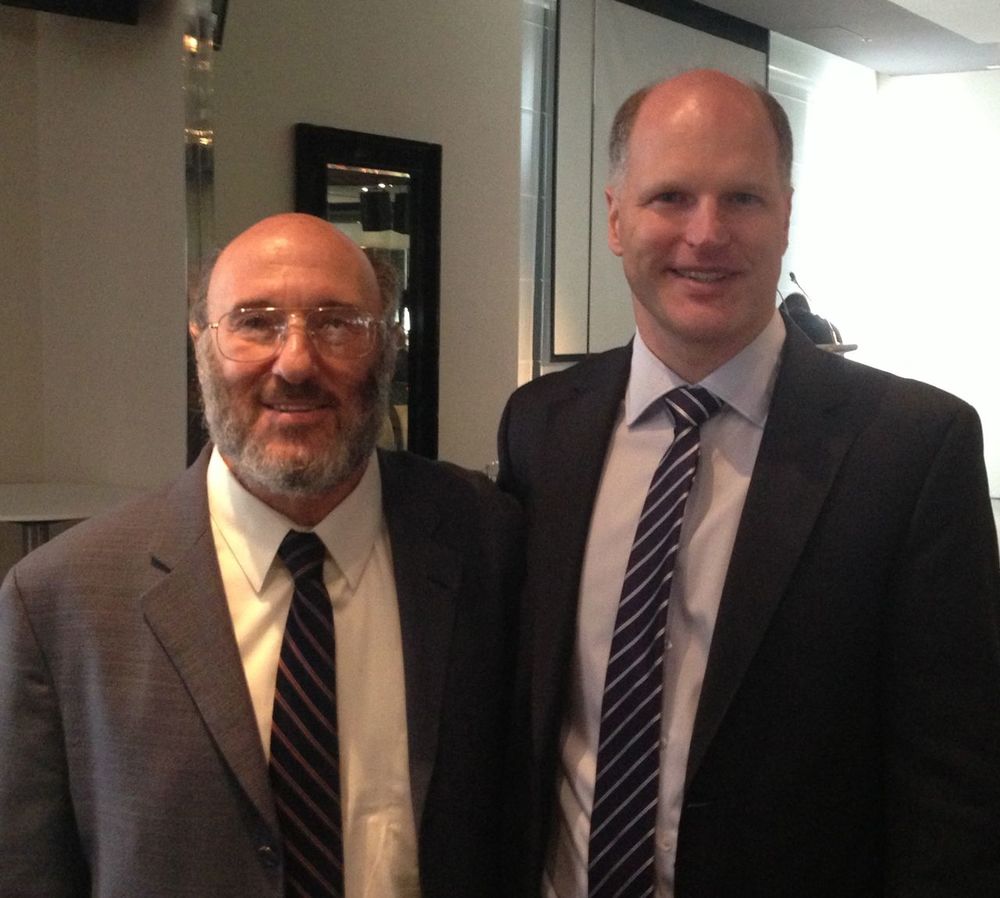Action-Based Jurisprudence II: Down under (and back again)
/
I gave a presentation at the wonderfully principle-centered 2nd annual Mises Seminar Australia in Sydney's central business district (CBD) on 2 December 2012. Here is a document version of my presentation, a close transcript arranged with selected content from the slides and rounded out with a list of readings.
Key themes included clarifying the difference between the ethical and the legal and differentiating "law" into five sub-disciplines, each with its own distinct domains and methods, conflating which (as is usually done) leads to serious problems (which we see all around us). It discusses who wins and who loses from contemporary complexity in legal definitions, and argues that the emerging action-based jurisprudence approach offers a better way of addressing the many contingent complexities of real life and culture without undermining fundamental principles of civilization in the process.

With Mises Seminar co-organizer and Liberty Australia co-founder and director Michael ConaghanDeveloping this for me started out as an attempt at a simpler restatement of the arguments in my August 2011 paper, Action-Based Jurisprudence: Praxeological Legal Theory in Relation to Economic Theory, Ethics, and Legal Practice," one that would be more accessible to people less versed in the background literature. As it developed, new territory and reformulations emerged. This included the three theory modules designed to help people grasp some difficult but crucial concepts without having to delve into stacks of academic books and articles to glimpse a solid initial understanding (after which, those stacks of books and articles can more profitably follow, and a strictly select list of them does, on the last two pages).
A substantially expanded and elaborated academic journal version, with more detailed references and footnotes and some additional new angles, especially on the relationship with action-grounded criminology (our understanding of what crime and criminality actually are), is also in the works.

With Professor Walter Block at 2nd Mises Seminar Australia (visiting Yanks!)There and back again
This was my first trip south of the equator. I had a wonderful time in Sydney and got to meet a number of people I had previously encountered only online, including among many others, organizing team members Michael Conaghan, Benjamin Marks, Washington Sanchez, Samuel Marks, and Anthony Coralluzzo. Before this weekend, I had only briefly met the legendary libertarian teacher/promoter and enthusiastic intellectual trouble-maker Professor Walter Block, but this time had the opportunity to speak with him at greater length. My presentation also came just after one of his (now in his 70s, he did five segments in two days and looked ready to do 12 more). I was stepping up right after someone who has been presenting at conferences since I was learning to walk, and I was touched afterwards that he referred back to content from my talk several times in his later segments.
I also got to talk at length with Michael Conaghan, co-founder and director of Liberty Australia, who is quickly becoming legendary himself in online discussion circles for regularly coming up with spot-on quotations from the relevant literature (even with occasional video clips of old Q&A sessions with Rothbard personally addressing the question at hand) and dropping them out of thin air into active discussion threads.
My last day was a solo trip by city bus to Bondi Beach and MacKenzies Bay. I told the waiter at the amazing Hurricane's Grill Bondi Beach that I didn't feel like leaving Sydney to return to the frozen German winter, but would rather send for my family to come down and join me. He just smiled and said this is the kind of feeling a great many people who visit Sydney seem to report. I could believe it. Maybe Hurricane's delivers to Germany?

